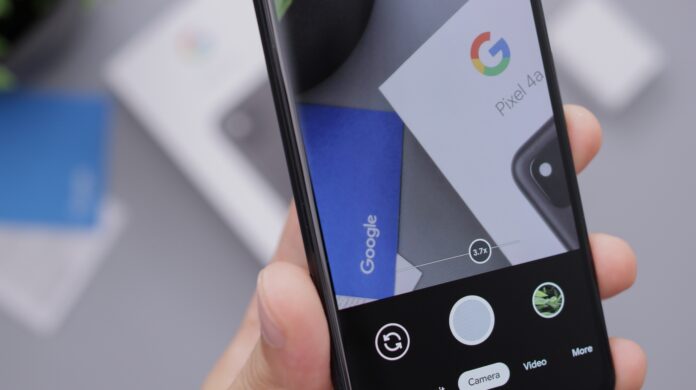Google I/O is an annual developer conference held by Google that serves as a platform for the company to showcase its latest advancements, technologies, and initiatives across various product lines. The conference typically takes place in California and attracts thousands of developers, tech enthusiasts, and industry professionals from around the world. Attendees get the opportunity to attend keynote presentations, participate in hands-on workshops, engage in technical sessions, and interact with Google experts.
Google I/O is a highly anticipated event in the tech community as it unveils significant updates and announcements related to Google’s products and services. The conference covers a wide range of topics, including Android, Google Assistant, Google Cloud Platform, Google Maps, Google Photos, Google Search, Google Workspace, and much more. Developers gain insights into new tools, APIs, and frameworks that enable them to build innovative applications and enhance the user experience across Google’s ecosystem.
Now, let’s delve into ten important aspects of Google I/O:
1. Keynote Presentations: The conference kicks off with a series of keynote presentations delivered by Google executives, including the CEO, Sundar Pichai. These keynotes set the tone for the event and highlight the major announcements and initiatives.
2. Product Announcements: Google I/O serves as a platform for major product announcements. It is during this event that Google unveils new hardware, software updates, and groundbreaking features across its product portfolio.
3. Developer-focused Sessions: A significant portion of Google I/O is dedicated to technical sessions tailored for developers. These sessions provide deep dives into various technologies, frameworks, and APIs, empowering developers to leverage Google’s platforms effectively.
4. Android Updates: As the world’s most popular mobile operating system, Android receives substantial attention at Google I/O. The conference unveils the latest Android updates, including new features, design guidelines, and improvements to the overall user experience.
5. Google Assistant: Google’s voice-activated digital assistant, Google Assistant, is a key focus at the conference. Developers learn about enhancements to the Assistant’s capabilities, tools for building voice applications, and integration possibilities with various devices.
6. Google Cloud Platform: Google I/O provides insights into the latest advancements in Google Cloud Platform (GCP), enabling developers and businesses to harness the power of cloud computing. New services, tools, and case studies are often showcased.
7. Machine Learning and Artificial Intelligence: With Google’s emphasis on machine learning and artificial intelligence, Google I/O sheds light on new AI-powered technologies, frameworks, and tools that enable developers to build intelligent applications.
8. Web Technologies: Google is deeply invested in advancing web technologies, and Google I/O reflects this commitment. Attendees learn about the latest developments in web standards, Progressive Web Apps (PWAs), Chrome browser updates, and more.
9. Google’s Accessibility Initiatives: Google places great importance on making its products and services accessible to all users. Google I/O highlights the company’s accessibility efforts and showcases tools and features that improve inclusivity.
10. Community Engagement: Google I/O fosters a vibrant community of developers and technologists. Attendees have the opportunity to network, collaborate, and connect with like-minded individuals through various events, meetups, and interactive experiences.
Google I/O is an influential developer conference where Google unveils its latest advancements and initiatives. It covers a broad spectrum of topics ranging from Android and Google Assistant to Google Cloud Platform and web technologies. With keynote presentations, developer-focused sessions, and numerous announcements, Google I/O serves as a platform for innovation, collaboration, and knowledge sharing within the tech community.
Google I/O is an annual developer conference held by Google that serves as a platform for the company to showcase its latest advancements, technologies, and initiatives across various product lines. The conference typically takes place in California and attracts thousands of developers, tech enthusiasts, and industry professionals from around the world. Attendees get the opportunity to attend keynote presentations, participate in hands-on workshops, engage in technical sessions, and interact with Google experts.
Google I/O, often referred to as the Google Developer Conference, is a highly anticipated event in the tech community. It is a gathering of developers, designers, and technology enthusiasts who come together to explore the latest innovations from Google and gain insights into the future of technology. The conference provides a unique opportunity to learn from industry leaders, network with peers, and dive deep into the latest advancements in software development, artificial intelligence, cloud computing, and more.
At Google I/O, participants can expect a wide range of activities and sessions that cater to their diverse interests and skill levels. The event spans multiple days and is packed with keynote presentations, technical sessions, codelabs, sandbox demonstrations, and interactive experiences. These sessions cover various topics related to Google’s products and services, offering attendees a comprehensive understanding of the company’s ecosystem.
The conference begins with a series of keynote presentations that set the stage for the event. These keynotes are delivered by Google executives, including the CEO, Sundar Pichai, and other top leaders in the company. The keynotes provide an overview of Google’s vision, highlight major announcements, and showcase the latest products and technologies. They serve as a guide for attendees, directing their attention towards the most important developments and innovations to expect throughout the conference.
One of the most anticipated aspects of Google I/O is the product announcements. Google often uses this event as a platform to unveil new hardware, software updates, and groundbreaking features. These announcements generate significant buzz and excitement among attendees and the broader tech community. From the latest Android version to new devices like smartphones, tablets, and smart home gadgets, Google I/O is a stage for the company to showcase its technological prowess and capture the attention of developers and consumers alike.
Google I/O is not just about the keynotes and product announcements; it also offers an extensive array of technical sessions designed to cater to developers’ needs. These sessions delve deep into various technologies, frameworks, and APIs that Google provides, equipping developers with the knowledge and skills necessary to build innovative applications. The sessions cover a wide range of topics, including Android development, Google Cloud Platform, web technologies, machine learning, artificial intelligence, and more. Attendees can choose from a diverse selection of sessions based on their areas of interest and expertise.
In addition to the technical sessions, Google I/O offers hands-on workshops and codelabs where attendees can engage in practical exercises and learn by doing. These interactive activities allow developers to work directly with Google experts, experiment with new tools and APIs, and gain a deeper understanding of the concepts covered in the sessions. The workshops and codelabs provide a more immersive and personalized learning experience, enabling developers to acquire practical skills that they can apply to their own projects.
Another highlight of Google I/O is the sandbox area, where attendees can explore and interact with various Google products and technologies. The sandbox offers hands-on demos, showcasing the capabilities of Google’s platforms and giving attendees the opportunity to experiment with different tools and applications. It serves as a hub of innovation, fostering creativity and collaboration among developers as they exchange ideas and explore new possibilities.
Google I/O also provides a platform for Google to highlight its commitment to accessibility and inclusivity. The conference showcases the company’s efforts to make its products and services accessible to users with diverse needs. Attendees can learn about accessibility features, tools, and best practices that enable developers to create inclusive applications and experiences. Google’s dedication to accessibility is reflected in sessions focused on designing for accessibility, integrating accessibility features into applications, and ensuring a seamless user experience for individuals with disabilities. By emphasizing accessibility at Google I/O, the company aims to inspire developers to prioritize inclusivity in their own projects and contribute to a more accessible digital landscape.
Google I/O is not only about learning and technical sessions; it also fosters a sense of community and networking among attendees. The conference provides numerous opportunities for developers and technology enthusiasts to connect with like-minded individuals, exchange ideas, and build relationships. Attendees can engage in informal discussions, attend meetups and social events, and participate in networking sessions specifically designed to facilitate connections. These interactions create a supportive environment where participants can collaborate, share insights, and form valuable professional connections that extend beyond the conference.
Moreover, Google I/O often features notable guest speakers and industry experts who share their insights and experiences with the attendees. These speakers bring diverse perspectives and provide valuable perspectives on emerging trends, best practices, and the future of technology. Their presentations inspire and motivate developers to push the boundaries of innovation and explore new possibilities within their respective fields.
Google I/O is not limited to physical attendance; it also provides live streams and on-demand videos of the sessions. This enables individuals who are unable to attend in person to still benefit from the conference’s valuable content. Live streaming allows developers from around the world to tune in and participate remotely, ensuring that the knowledge and insights shared at Google I/O reach a broader audience.
In recent years, Google I/O has expanded its focus beyond traditional software development to encompass emerging technologies such as virtual reality (VR), augmented reality (AR), and Internet of Things (IoT). These areas receive dedicated sessions and demonstrations, offering developers a glimpse into the future of immersive experiences and connected devices. Google’s investments in VR, AR, and IoT reflect its commitment to shaping the next generation of technology and empowering developers to leverage these emerging platforms.
Furthermore, Google I/O provides a platform for Google to engage with developers and gather feedback. The conference serves as an opportunity for the company to listen to the needs and challenges faced by developers and to address them through new tools, resources, and updates. Google actively seeks input from the developer community, fostering a collaborative relationship that drives the evolution of its platforms and services.
In conclusion, Google I/O is a highly influential developer conference that showcases Google’s latest advancements, technologies, and initiatives. It brings together developers, designers, and technology enthusiasts from around the world to learn, collaborate, and explore the future of technology. With its keynote presentations, product announcements, technical sessions, hands-on workshops, and networking opportunities, Google I/O provides a comprehensive and immersive experience for attendees. By fostering a sense of community, promoting accessibility, and embracing emerging technologies, Google I/O plays a pivotal role in shaping the developer ecosystem and driving innovation across various industries.






















